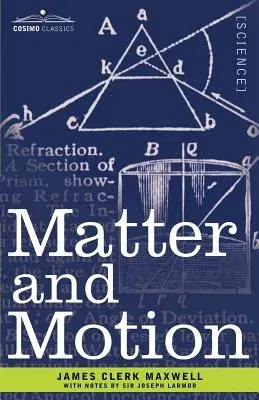This slim yet dense volume remains an excellent introduction to
Newtonian physics, just as when it was first published in 1877.
Beginning with the basics of physical science and working his way
steadily up to universal gravitation, Maxwell surveys late-19th-century
physics in his clear and concise style. Matter and Motion addresses: .
motion . force . the properties of the center of mass of a material
system . work and energy . recapitulation . the pendulum and gravity .
the equations of motion of a connected system Readers from the science
historian to the high school physics student will come away from Matter
and Motion with a deeper understanding of the roots of modern physics.
Scottish physicist and mathematician JAMES CLERK MAXWELL (1831-1879) is
considered by many to be one of the giants of theoretical physics.
Albert Einstein once described Maxwell's work as "the most profound and
the most fruitful that physics has experienced since the time of
Newton." A devoutly religious man and a published poet as well as a
renowned scientist, Maxwell's books include Theory of Heat (1870),
Treatise on Electricity and Magnetism (1873), and Elementary Treatise on
Electricity (1881).


